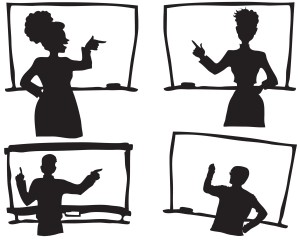 We all have a desire to teach our children in the most effective way. So how can we ensure that our children experience the best learning environment for them. In a previous post, I explained that there are 7 ways in which a person could potential learn new information. When we combine our understanding of the way our child prefers to learn with the three tips listed below our children will experience an excitement for learning.
We all have a desire to teach our children in the most effective way. So how can we ensure that our children experience the best learning environment for them. In a previous post, I explained that there are 7 ways in which a person could potential learn new information. When we combine our understanding of the way our child prefers to learn with the three tips listed below our children will experience an excitement for learning.
The three tips for being an effective teacher are: being a reflective teacher, being aware of our attitude, and finally having an awareness of the theories about the best way to teach children. I will explain each one a little future.
1. Reflective teaching– A reflective teacher is concerned about how they can best relay the information to their students. This teacher ask themselves questions after the lesson. Questions resembling these “What am I doing, and why?” “How can I better meet my students’ needs?” “What are some alternative learning activities to achieve these objectives?” “How could I have encouraged more involvement or learning on the part of the students?” Asking ourselves questions about each lesson is a good habit. Even when the lesson went well it is a good idea to access what went well and why? So that we can use a similar technique when making a decision about how to plan another lesson.
“Good teaching is one fourth preparation and three-fourths theatre.” Gail Godwin
2. Attitude– There are four major categories that are believed to affect teaching behavior.
a. Attitude toward self: self- understanding: when we recognize our own anxieties and needs we can empathize with our children needs or expressions of anxiety. We also need to recognize that own anxieties may make us impatience when teaching the subject thus, in return can cause anxiety in our children.
b. participant observation– when we observe our children/students and record what we hear, see, and feel about the things we observed. We then can take our recorded observations to another parent or professional, if we have any questions regarding what we observed.
c. attitude toward children– children can easily pick up on an adult behavior, and they can often see the aspects of the teachers attitude toward them. That is why we as parents need to be careful that we treat each child the same, otherwise children will quickly say, ” that’s not fair, why did Johnny get to have dessert and not me.” Well the same is true in the classroom. We must be sure to be patient with every child, not just the child who seems to grasp the concept fairly quickly.
d. expectations– if we want great results from our children we must express what we expect from them. We have the ability to pull out of our child whatever behavior we want. This is also known as self- fulfilling prophecy. If we expect much we will get much and same is true the other way around, if we expect little we will get little.
3. Theoretical Knowledge which means we must be able to interpret classroom events and solve the problems arising from them. An example of Theoretical Knowledge is being familiar with zone of proximal development, assigning a task that is too hard for the child to do a lone but easy enough for them to complete with help from a more skilled person. The assistance offered to the child is called scaffolding, allows the children to finish a task that they would not be able to do by themselves.
It is vital that we apply the three tips when teaching our children. We must reflect on the way the lesson went, what helped or hindered. We also must have the right attitude because our attitude has the ability to create a thirst or an annoyance for a subject. And lastly, we must be aware of our children’s content knowledge so that we can keep them engaged and moving ahead.